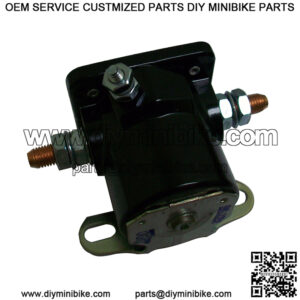Categories
- Accessories (626)
- Air Filter (470)
- Axles and Key Stocks (608)
- Battery Charger (6)
- Bearings and Bushings (463)
- Brakes and Accessories (1052)
- Cables (341)
- Carburetor (600)
- Chain and Accessories (458)
- Clutches (1422)
- Covers (100)
- Drive Belt (407)
- Engines and Components (587)
- Exhaust (567)
- Fan (13)
- Fenders (102)
- Foot Pegs (173)
- Frame Parts (149)
- Fuel Tanks & Pumps & Etc (10)
- Fuel Tanks & Pumps & Etc. (396)
- Gearboxes (34)
- Hardware (Nuts and Bolts) (751)
- Horns (3)
- Ignition Coil and Spark Plug (388)
- Lights (136)
- Mirrors (46)
- Rectifier/Regulator (46)
- Seats & Seat Belts and Padding (128)
- Shocks and Springs (757)
- Solenoid (51)
- Spindles (5)
- Sprockets and Jackshafts (472)
- Sprockets Hubs and Guards (184)
- Starters (203)
- Steering Wheels and Components (112)
- Switch (112)
- Tachometer (6)
- Tachs & Scales and Sensors (69)
- Thumb Throttles and Twist Grips HandleBars (385)
- Tie Rods and Accessories (74)
- Tires Rims Wheels (1367)
- Tools (565)
- Tools and Starters (136)
- Torque Converter (127)
- Uncategorized (1)
- Weldment (92)
Product tags
Rod for Honda GX200 (3.403″) Use a Honda GX160 UT2 Piston in a GX200 Block
SPREAD THE LOVE
Description
Product Specs:
ARC 3.403 Rod.
Machined from 7075-T6 aluminum
Designed to work with the Honda GX160 UT2 piston in a GX200 block.
Rod bolt torque: 170 in/lbs lubricated
Installation Instructions:
To install your ARC rod you will need a 12 point 1/4″ socket and a QUALITY inch pound torque wrench. You will need an outside micrometer, dial bore gauge or plasti gauge, and oil.
Measure the crank pin diameter with the outside mic, it should measure 1.180″ +/-.0005″. Measure in several spots to insure roundness. If out of round more than .0005″ it probably should be replaced. The crank pin finish should be smooth to the touch.
When disassembling the rod notice on the side of the rod with the part number there are two dots next to the separation point of the beam and cap. These dots help to re-orientate the cap and beam when assembled. The side of the rod with the part number engraved will always face the side cover side.
Make sure the bearing and rod serrations are clean and install the bearings. Lubricate the rod bolt threads and hand tighten the bolts. Using the torque wrench tighten the bolts to 60″ lbs. Alternate each side to increase the torque by 20″ lbs at a time until you reach 150″lbs. Then loosen the bolts and repeat the torque process. this helps seat the rod bearing especially on a new rod. Measure the bore with your dial bore gauge opposite the parting lines. If using plasti gauge you will have to install the rod on the crank and use in accordance the plasti gauge instructions.
The rod bore should measure 1.183 +/.0005″. With plasti gauge you are looking for about .003″ clearance. From .0025-.0035″ clearance is acceptable. Anything outside that dimension please call 800-521-3560 for recommendation.
Once clearance is set apply oil to rod, crank, and wrist pin and install this time torque to 170″lbs.
Improperly torquing rod bolts is one of the most common causes of rod failure.
Refer to instructions shipped with all rods
Related products
-
Engines and Components
2:1 Reduction Gearbox Kit for 1″ Shaft
-
Tools and Starters
12V Starter Relay/ Solenoid
-
Exhaust
1″ Clone Header Pipe
-
Engines and Components
“Short” Heavy Duty Wrist Pin for Wiseco Pistons





